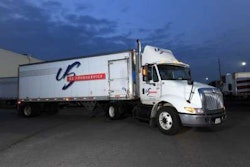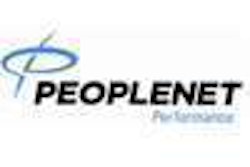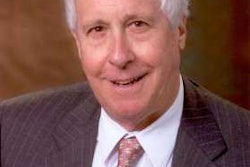J.B. Hunt Transport Services Inc. on Tuesday, July 14, announced second-quarter net earnings of $24.0 million, including a pretax charge of $10.3 million to write down the value of certain tractors held for sale. Last year’s second-quarter net earnings were $50.6 million.
Total operating revenue was $770 million, a 21 percent decrease from $977 million. The company attributed the decrease primarily to lower fuel surcharge revenues, which reflect significantly lower fuel costs in the current quarter.
Operating revenue, excluding fuel surcharges, decreased 8 percent. J.B. Hunt said higher Intermodal segment volumes and significant growth in the company’s Integrated Capacity Solutions (ICS) segment partially offset lower volumes in its Dedicated Contract Services (DCS) and Truck segments; the significant decline in Truck revenues was primarily a result of the company’s ongoing long-term strategy to reduce the size of the segment’s tractor fleet and due to weaker demand brought about by the current economic recession.
Operating income declined to $47 million vs. $94 million. The company said the $10.3 million pretax equipment charge, which is recorded in general and administrative expenses, and significant DCS implementation expenses reduced current-period operating income; in addition, Intermodal segment operating income declined, partly due to lower revenue levels and lower rates.
“We saw evidence in the current quarter of gradual improvement in demand, which has been soft for three years,” said Kirk Thompson, president and chief executive officer of J.B. Hunt, based in Lowell, Ark. “While current-quarter volumes did show seasonal improvements across our four business segments, pricing has been challenging following the implementation of various bids and proposals submitted earlier in the year from Intermodal and Truck customers. We are not pleased with the resulting pricing in these two segments.”
Thompson said that while some in the industry have described the pricing environment as irrational and unsustainable, it is reflective of the sharp contractions in freight volumes this year. “We would expect pricing to show some improvement with increased demand or as capacity continues to exit the market,” he said.
J.B. Hunt also announced that Jerry W. Walton, executive vice president of finance and administration and chief financial officer, will retire on Sept. 30, and that David Mee, currently senior vice president of tax and risk management and corporate secretary, will assume Walton’s title and duties following the conclusion of the third quarter. Walton, who will remain available as an adviser to the company, was appointed CFO in 1991.
“Jerry has been a tremendous asset to J.B. Hunt Transport Services throughout the years, both as an employee and colleague and as an outside adviser while a partner in KPMG’s Little Rock office,” Thompson said. “We thank him for his unwavering dedication and substantial contributions to the company, and we wish him well in his well-deserved retirement. We are pleased to say that Jerry will be available as an adviser to the company, although we intend to ensure that Jerry enjoys his retirement.”
Mee has been at JBHT for 16 years, having joined the company shortly after Walton’s arrival. He previously worked directly with Walton at KPMG for 10 years.
“Succession planning is an important part of our company’s strategy, and we have been preparing for this inevitable day for some time,” Thompson said. “Jerry has mentored and developed an organization of qualified, key managers ,including his successor. We are fortunate to have had Dave Mee in our company for the last 16 years. He is well prepared to step into this important role. Dave has a thorough understanding of our businesses and strategies and brings strong analytical and critical thinking skills to the position, which will serve our shareholders well. We are confident in Dave’s abilities and intricate knowledge of the company. We look forward to a smooth transition.”











